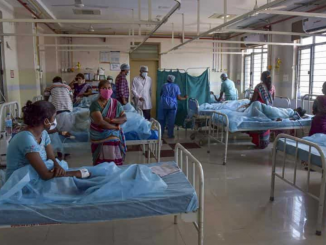
December 22, 2021
Published originally on the Convergences Revolutionnaires website, the organ of the Etincelle fraction of the NPA (New Anti-Capitalist Party), translated from French and edited
With nearly 56% of the votes cast in Chile, Gabriel Boric, the presidential candidate at the head of the left-wing coalition, defeated the right-wing Pinochétist candidate José Antonio Kast, winning in ten out of sixteen regions, and obtaining the largest number of votes for a presidential candidate since the end of the dictatorship. He even succeeded in increasing participation, especially among the youth. However, abstention remained high (46%). There were numerous, massive scenes of jubilation in the capital, Santiago, as well as in the provinces. Nevertheless, there wasn’t an explosion of joy in the majority of the working-class areas. While this chapter of the dictatorship is temporarily over, and we are not disappointed to see the extreme-right defeated, the gap between the illusions of one section of the electorate and the reality of Boric’s future policies is sure to become a source of tension, as there are significant social shocks to come.
A victory resulting from a misunderstanding
The period between the two rounds of the elections was tense on a symbolic level, with both candidates refocusing their speeches on basic themes such as economic stability, security and political appeasement – in contrast to the obvious social polarization and the collapse of entire economic sectors into generalized insecurity. Boric’s victory is based on a misunderstanding that will not be without consequences. The difference between the two camps is ultimately one million votes. Boric, using his positive reputation as a former student leader, was able to play the card of the lesser evil by constantly appealing to the centrist sectors of the former Concertation (an alliance between Christian Democrats and Socialists), by abandoning entire sections of the popular demands of October 2019 – including by promising to refuse amnesty to the rioters – and by keeping his distance from the constituent assembly process that is underway. While many sectors of his electorate welcome his victory and the “balanced” and “reasonable” path of his lukewarm electoral promises, the most important trap is not so much that of a proven lack of willingness to fight against the market economy, as that of demobilizing workers and popular sectors. And here, the role of the Communist Party, part of the coalition, will be decisive despite its setbacks in the youth and the main trade union federation, the CUT (Workers’ United Center). The feminist and Mapuche collectives (the Mapuche are the most important indigenous peoples in Chile, who have played a huge role in the recent social struggles), less involved for the moment, are tempering their enthusiasm and are preparing for the pressure games to broaden the agenda of the new president who will take office at the beginning of March. A good part of the youth who went from the invasion of the metro stations in October 2019 (protesting the rise in fares) to the victory rallies of the left in Santiago in December 2021 probably have fewer illusions, and are chanting ironically: “Todo bien, todo gratis” (Everything is fine, everything will be free).
Reorganization of capitalism and social shocks to come
But there will be many obstacles for Boric, an advocate of the institutional path for a kind of New Majority 2.0. To achieve a parliamentary majority, he will need 78 deputies. He would have 79 with the 37 from the Broad Front (frente amplio), the 37 from the New Social Pact, 3 Humanists and 2 ecologists, but reaching an agreement with these five will be hard work. The right wing, reduced to 68 deputies, will nevertheless be able to use its significant blocking power in the Senate. However, it is on the ground of social struggle that he will face the hardest test, in view of all the illusions that are harbored regarding this deputy from the end of the world (His city is Punta Arenas – located in the far South of the country at the southernmost end of South America). On the one hand, part of his electoral program is dependent on copper prices, and yet he wants to get out of the extractivist model. On the other hand, he has no concrete solution to avoid the super-exploitation of the labor force (a recent study showed that for every eight hours worked, only three came back in the form of wages in Chile). Legality will not be enough to make the capitalists of the “shock doctrine” bend. They come trained in the school of Chilean economists trained in the U.S. (the “Chicago Boys”), and their solutions are a package-deal that comes with helmets and guns. The wind of revolt has died down, yet with the push against the extreme right we can see a promising potential, provided we finally get away from the institutional solutions.




